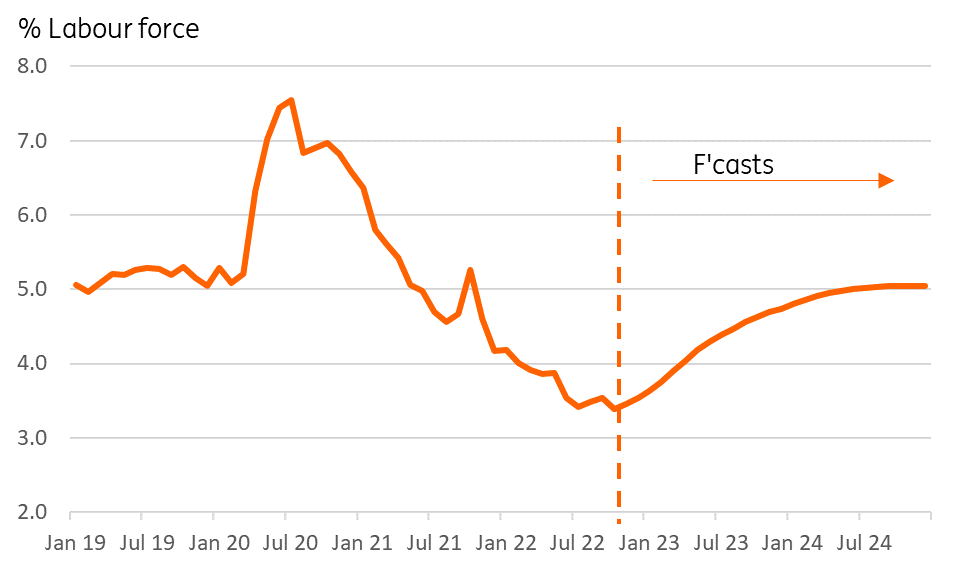Australia: Further strong employment gains
Against some expectations that labour supply constraints could begin to slow the pace of hiring and push the unemployment rate higher, October's labour market data shows that there is still room for solid gains in full-time jobs in Australia
| 32,200 |
Total employment gainsunderstates full-time employment gains |
| Better than expected | |
Despite labour shortages, employment growth is still happening
On casual inspection, Australia is running out of available labour. Retail outlets and F&B establishments uniformly display "we are hiring" signs, and it looks very much as if the economy is hitting labour supply constraints. But despite this, it still appears that there is enough labour available, not only to fill more jobs than there is growth in the population of working age, but that those jobs are also predominantly, full-time, and typically higher quality and better-paid jobs.
In terms of the numbers: The total gain in employment in October from the previous months was 32,200. but this understates the boost to household spending, as the full-time employment gain was 47,100, which must have included some conversion of part-time jobs to full-time. Part-time employment fell by 14,900.
The total number of unemployed broadly mirrored the employment gains, falling 20,500, though there was also a very small drop in labour force participation which helped to bring the unemployment rate down to 3.4%, equal to its previous record low.
Australia's unemployment rate and forecasts

Labour market probably close to its maximum tightness
It is difficult to see how the labour market is going to tighten significantly further from here. This month may be one of the last to show solid employment gains, though we may need to wait until early 2023 for softening to become more apparent and for the unemployment rate to start nosing higher.
In the meantime, we don't expect today's data to have any material bearing on how the Reserve Bank of Australia conducts its monetary policy in the coming months. We still anticipate further tightening and at a moderate 25bp per meeting pace now that rates are already at 2.85%, with the RBA signalling that they can take more measured approach from here on.
We still anticipate rates rising into the early part of 2023, with the cash rate target peaking at 3.6% in 1Q23 amidst signs of inflation topping out and growth beginning to slow.
This publication has been prepared by ING solely for information purposes irrespective of a particular user's means, financial situation or investment objectives. The information does not constitute investment recommendation, and nor is it investment, legal or tax advice or an offer or solicitation to purchase or sell any financial instrument. Read more
Download
Download snap